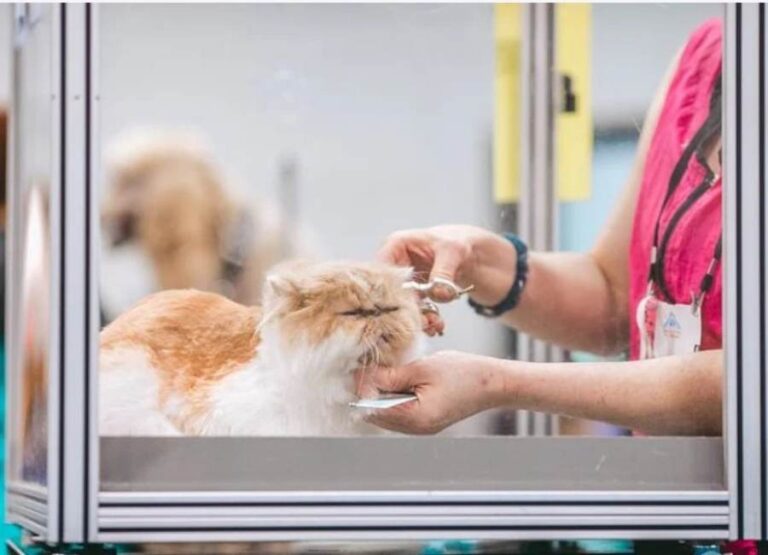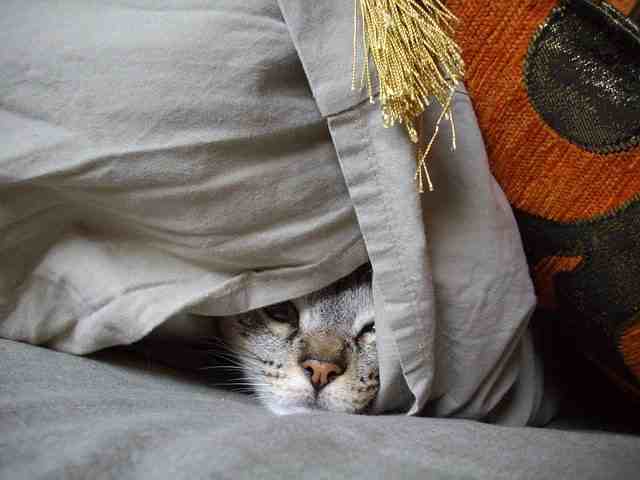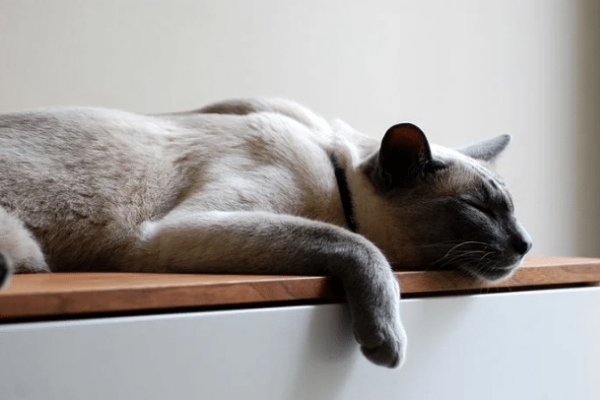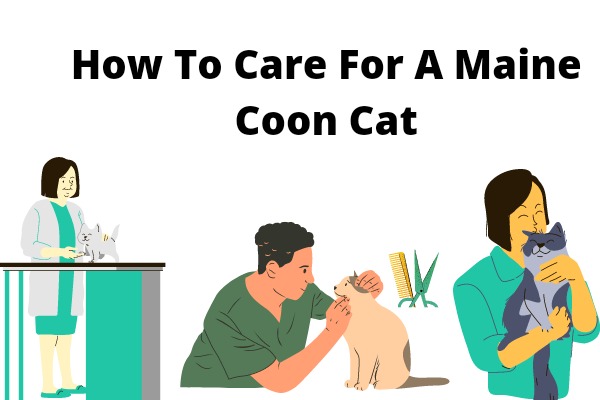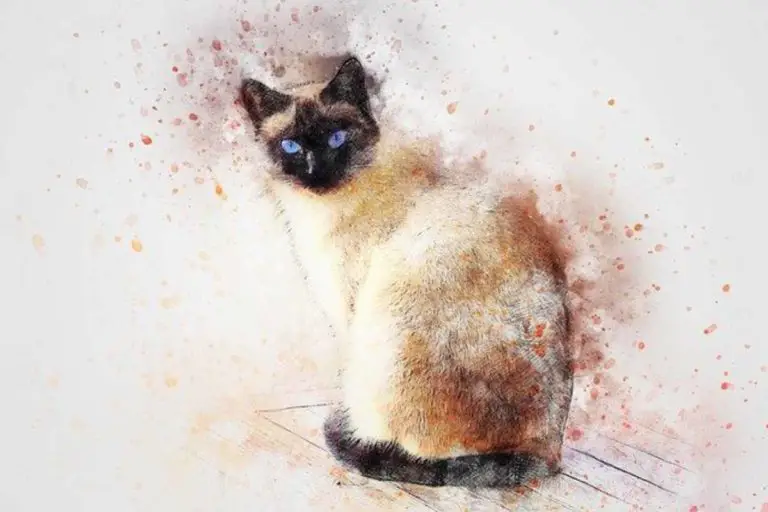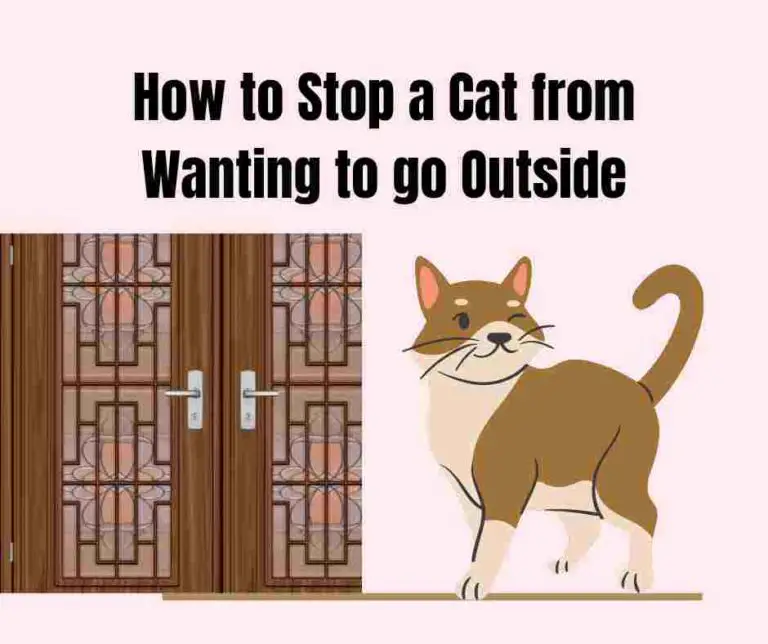12 Reasons For An 8 Week Old Kitten Not Eating
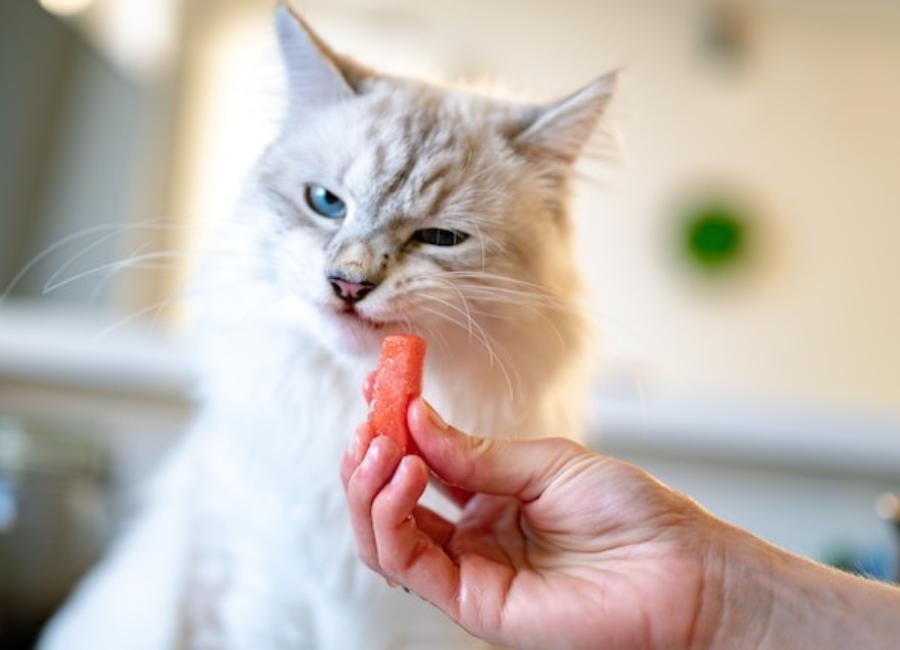
Why Is My 8 Week Old Kitten Not Eating? Let’s find out together…
In this blog post, we’ll talk about why an 8-week-old kitten may not be eating and what you can do to help them get the nutrition they need to grow up healthy and strong.
Let’s get started!
Why Is My 8 Week Old Kitten Not Eating
A kitten that is 8 weeks old may not be eating for a variety of reasons, including dental issues, not liking the food, illnesses, stress, or adjustments to the kitten’s surroundings or habits.
If you are worried about your kitten’s lack of appetite, it is essential to speak with a veterinarian right away to identify the underlying issue and administer the necessary care.
In general, it’s crucial to make sure the food is delivered to kittens at the proper temperature and is suitable for their stage of development.
A peaceful and secure setting, as well as a feeding regimen, can encourage a healthy appetite.
When to seek veterinary care for an 8 week old kitten not eating
If the kitten hasn’t eaten for 24 hours, it could be a sign of a wider condition that needs to be treated, and you should visit a vet.
Let’s break it down further…
Reasons why an 8 week old kitten may not be eating
The following are some of the most common reasons why an 8 week old kitten may not be eating:
1. Environmental factors
Kittens can get stressed and anxious due to environmental variables including loud sounds, potent odors, or strange settings, which makes it harder for them to feed.
It’s crucial to offer the kitten a tranquil, peaceful atmosphere as well as a cozy, safe eating area.
2. Feeding behavior
A kitten’s appetite may also be impacted by feeding habits.
For instance, eating too quickly might make a kitten feel queasy or sick while eating by themselves, or in the presence of other cats can make them feel worried or nervous.
It’s crucial to provide the kitten with a peaceful and quiet space to eat in.
3. Intestinal parasites
Giardia and other parasites can cause gastrointestinal problems that make eating unpleasant or challenging.
Veterinarians should examine and treat parasite-infected kittens as necessary.
4. Feline upper respiratory infection
A common disease known as feline upper respiratory infection (URI) can make kittens lose their appetite.
Sneezing, coughing, and drainage from the eyes or nose are some other URI symptoms.
A veterinarian should assess kittens with URI to determine the best course of action.
5. New diet
The kitten could take some time to become used to the new food if you recently altered their diet.
It is advised to switch to a new diet gradually by combining a little bit of the new food with the old meal and progressively increasing the amount of the new food over the course of several days.
6. Dental issues
Kittens may struggle with oral problems like teething, which can make feeding unpleasant.
It’s crucial to provide them with food that is soft or moist and is simple for them to consume.
The kitten should be examined by a veterinarian to see whether they have dental issues.
7. Lack of appetite
Some kittens can only be fussy eaters or have a poor appetite. They may find it challenging to eat enough food to preserve their health as a result.
In these situations, it’s crucial to provide them with short, frequently spaced servings of premium kitten food and make sure they have access to clean water.
8. Illness or injury
Kittens who are hurt or unwell might not want to eat.
Moreover, they could exhibit additional symptoms of sickness including fatigue, vomiting, or diarrhea.
Take your kitten to the doctor right away if they exhibit any of these symptoms, so they may be diagnosed and given the proper care.
9. Stress or anxiety
A kitten’s appetite might be affected by stress or worry.
This may be as a result of their going through a traumatic experience or relocating to a new house, which are both changes in their surroundings.
To lessen stress, it’s crucial to help the kitten feel safe and secure in their new surroundings.
10. Poor Feeding Schedule
Kittens benefit from consistency, and an inconsistent feeding schedule may make them less hungry.
Establish a definite feeding schedule and try your best to keep to it.
Make careful to adapt the kitten’s feeding schedule gradually if you observe any changes.
11. Food Texture
Each kitten has their own feeding preferences, and some may not enjoy the way certain foods are prepared.
For example, they might not eat anything that is firm or crunchy, or they could prefer pate to pieces.
Try out several foods to determine which ones they prefer.
12. Food Temperature
Room-temperature food is what kittens prefer to eat.
They might not feel like eating if the food is overly hot or cold.
Thus, it’s imperative to test the food’s temperature before serving it.
Learn more about how to care for your kitten.
How often an 8 week old kitten should be fed
At 8 weeks old, a kitten should be eating solid food and can be fed around 3 to 4 meals per day.
Each meal should consist of approximately a quarter to a third of a cup of food.
However, it’s important to note that the exact amount of food and frequency of feedings can vary based on the individual kitten’s weight, activity level, and appetite.
You should also consult with your veterinarian for specific feeding recommendations for your kitten.
Warning signs that your kitten may not be eating enough
There are various warning signals to watch out for if you think your cat is not eating enough.
Lethargy, weight loss, a notable drop in appetite, and a lack of interest in food are a few of these.
You can keep an eye on your kitten’s intake and keep tabs on how much they consume and expend.
A well-fed kitten should also feel comfortable over its back and have a lovely, large, fat belly.
It’s crucial to speak with a veterinarian if you observe any of these symptoms to make sure your kitten is healthy and getting the nourishment it needs to grow and thrive.
How to encourage your 8 week old kitten to eat
Here are some common ways to encourage your 8-week-old kitten to eat:
- Make sure the feeding area is quiet and free of distractions so your kitten can focus on eating.
- Offer a variety of wet and dry cat food to find what your kitten likes best.
- Gradually introduce new foods rather than switching suddenly, as this can upset their stomach.
- Warm up wet cat food slightly in the microwave to release the aroma and increase its appeal.
- Try using an elevated bowl to help your kitten eat more comfortably.
- Create a feeding schedule and stick to it to help establish a routine and ensure your kitten is regularly fed.
- Use a separate bowl for water, and make sure that it is always clean and fresh.
- Try feeding your kitten by hand or using a feeding syringe to encourage them to eat, especially if they’re not eating enough.
- Consult with a veterinarian to ensure that there are no underlying health issues that are causing your kitten to not eat.
Keep in mind that your kitten may need some time to become used to their new diet, so be patient and consistent with feeding times.
Please don’t hesitate to speak with a veterinarian if you have any questions.
Learn more about how to discipline your kitten.
Tips for introducing new foods to your 8 week old kitten
When introducing new foods to an 8-week-old kitten, it is important to do so slowly and gradually to avoid digestive upset.
Here are some tips to follow:
- Mix a small amount of the new food with the kitten’s current food. Start with a ratio of 25% new food to 75% old food and gradually increase the proportion of the new food over a week or two.
- Monitor the kitten’s reaction to the new food. If the kitten shows signs of digestive upset, such as vomiting or diarrhea, stop giving the new food and consult with a veterinarian.
- Offer a variety of foods, such as wet and dry food, to provide a well-balanced diet.
- Make sure the kitten has access to fresh water at all times.
- If the kitten continues to refuse the new food, try warming it slightly or adding a small amount of a flavorful topping, such as canned tuna juice or chicken broth, to entice the kitten to eat.
Remember that each kitten is different, and what works for one may not work for another.
It is important to be patient and take the time to find a diet that works well for your individual kitten.
Related questions
My 8 week old kitten is not eating, what should I do?
Loss of appetite in kittens can be a serious issue, and you should contact your veterinarian immediately.
They can examine your kitten to determine the underlying cause of the problem and recommend the appropriate treatment.
What are some common reasons why an 8-week-old kitten may stop eating?
Some common reasons why an 8-week-old kitten may stop eating include dental problems, infections, digestive issues, stress, changes in diet or environment, or an underlying medical condition.
What can I do at home to help my 8-week-old kitten start eating again?
While it’s important to consult with your vet, there are some things you can do at home to encourage your kitten to resume eating.
Try offering different types of food, warming up the food to make it more appealing, or even hand-feeding your kitten.
Make sure your kitten is staying hydrated by offering water or even a milk substitute, and create a calm and comfortable environment for them to eat in.
Is it normal for kittens to have a decreased appetite?
While kittens can be finicky eaters, a sudden decrease in appetite is usually a cause for concern.
It’s important to monitor your kitten’s eating habits closely and contact your vet if you notice any significant changes.
How can I prevent my 8-week-old kitten from developing a loss of appetite?
To help prevent a loss of appetite in your kitten, make sure to provide them with consistent, high-quality food and keep their environment calm and stress-free.
Regular vet check-ups and vaccinations can also help prevent health issues that may lead to appetite loss.
Can I give my 8 week old kitten any over-the-counter remedies or supplements to stimulate their appetite?
It’s generally not recommended to give over-the-counter remedies or supplements to stimulate your kitten’s appetite without consulting with your vet first.
Some may even be harmful to your kitten’s health.
It’s best to follow your vet’s guidance and recommendations for treating your kitten’s loss of appetite.
Conclusion
In conclusion, taking care of an 8-week-old kitten can be a challenging but rewarding experience.
It is important to ensure that they are getting the proper nutrition, warmth, and care they need to thrive.
If your kitten is not eating, it is important to seek veterinary care as soon as possible to rule out any underlying health issues.
With patience, love, and proper care, your kitten will grow into a happy and healthy cat that will bring you joy for years to come.

